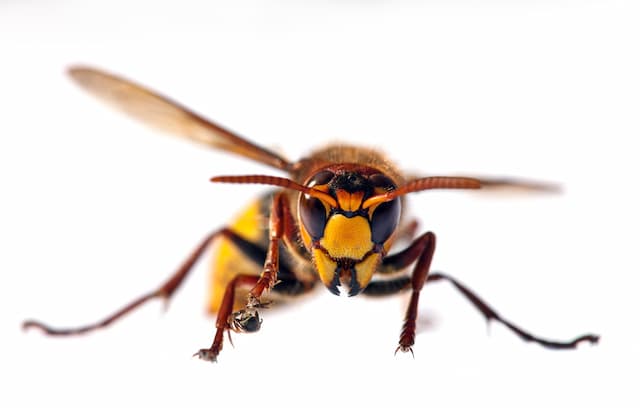As winter comes, the buzzing sounds of wasps seem to go away. This makes many people wonder where they go during the colder months. Wasps have interesting yearly habits and change the way they live to make it through the cold winter. In this investigation, we look into the interesting world of wasps in the winter, learning about their different ways to stay alive and how important they are to the natural environment.
Lifespan and Leaving the Nest
Wasps behave differently in the winter if you don’t understand how they live. Most species of wasps that live in temperate areas are social insects that live in colonies with a clear hierarchy and division of labor. As winter gets closer, the way the group works changes. Male wasps die, and the only ones that live to start new nests the next spring are young queen wasps that have already mated.
As time goes on, the amount of worker wasps, which are in charge of running the colony during the warmer months, starts to go down. When the colony’s goal of making new queens has been reached, the workers leave the nest, leaving it empty until the next year.
Looking for a place to live and sleep
Queen wasps go into a state of sleep or diapause in the winter so they can survive the cold. Diapause is a type of dormancy that is similar to sleep. During this time, the wasps’ metabolic processes slow down a lot. They look for safe places to live, like under the bark of trees, inside rotting logs, in cracks, or even in human-made buildings.
During this time, it was really cold, but the queens were able to stay warm. During the warm months, they store fat, which gives them energy to get through the cold months.
Emerging in Spring
As the weather warms up in spring, the queen wasps that have already mated leave their winter homes. They look for good places to build new nests, usually in places with plenty of food and safety. Each queen starts a new colony by laying eggs and growing the first generation of worker wasps to help the colony grow.
Ecological Significance
Wasps’ activity in the winter is important to the way nature works. They eat other insects, especially when it’s warm out, which helps keep pest numbers down. Wasps help plants and environments stay healthy and balanced by getting rid of insects that are bad for them.
Wasps are also a source of food for many animals during the winter. During this hard time of year, birds, animals, and other insects depend on hibernating wasps for food.
Safety and How People Get Along
Wasps usually sleep through the winter, but sometimes they can come into contact with people. Nests that aren’t being used may be taken over by other animals looking for protection, which could cause problems if people accidentally disturb these nests. When going outside in the winter, it’s important to be careful to avoid running into trouble.
Pest control and getting rid of nests
Pest control pros should get rid of wasp nests in the winter. Since the nests have been abandoned and the wasps have gone to sleep, experts can safely remove the nests without having to worry about being attacked by aggressive wasps. But you shouldn’t take down nests if you don’t have to. Nests are important to the environment and aren’t dangerous in the winter.
Conclusion
The way wasps act in the winter shows how nature’s yearly changes are carefully balanced. As the weather gets colder, mated queen wasps go into a sleep-like state called hibernation. They do this so they can survive the winter and start new nests in the spring. The abandoned nests give protection to other animals and provide food for predators when food is scarce.
By learning how wasps act during different seasons, you can learn more about their role in the environment and how they help control pest numbers. Even though wasp nests are dangerous, especially in the winter, professional pest control services can safely remove them when needed.
While we’re amazed by how well wasps can adapt and survive the winter, let’s not forget their important part in the natural world and how important they are to the ecosystem as a whole.
Wasp removal Oshawa. If contractual pests return following service and within the guarantee and warranty period we will return them at no additional cost.

